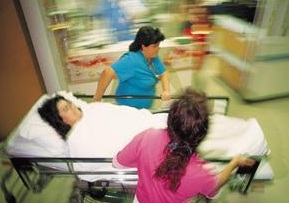 During a recent family health scare, it hit home for me how challenging things can be when you are dealing with something so deeply personal. It also caused me to reflect on the work we do in elder care management with families dealing with healthcare crises and aging issues every day.
During a recent family health scare, it hit home for me how challenging things can be when you are dealing with something so deeply personal. It also caused me to reflect on the work we do in elder care management with families dealing with healthcare crises and aging issues every day.
I will share a couple of things that struck me and some of the things we found most useful (and most challenging). I hope that others will comment or share thoughts because while these issues are deeply personal, there are many ways we can learn from and support each other.
Here are just a few of the thoughts I had while dealing with my family healthcare concerns:
Everyone deals with things in unique ways which thus affects the type of support needed and what helps (or doesn’t). My Mom’s relationships mean everything to her and she constantly thinks of others. She never realized how many people she had touched until she was ill. It meant so much to her hearing all the messages of support and positive thoughts. We were thankful for the ways technology enabled this, using an online portal to send updates out and get messages which we read to her daily. As much as the support meant to her and us, I cannot imagine trying to field all of that through phone calls. Some people shut off and just need some time to process when faced with a new diagnosis. Some people want all the positive reinforcement they can get while others may feel angry or depressed and resent positive comments.
Emotions are heightened when we’re under stress, meaning a small seemingly harmless statement or action can do a lot of perceived harm. This affects both family relationships and professional relationships. A kind word or minute of time can also do a lot of good. It was incredible to see the impact one nurse or assistant could make with gentle care or taking a few minutes to chat and how a sour attitude could affect my Mom’s outlook. This goes both ways too, and my Mom’s incredible people skills certainly had an impact on the care and attention she received.
The more resources and stress-reducing tools available, the more focus can be put on healing and coping. As noted above, my favorite tools are online portals that enable communication and updates. We have used patient portals at Aging Wisely for years, which enable communication and other tools for elder care management such as tracking medications and medical history. The other aspect of this is the readiness of professionals to serve as a resource…to help families find answers and take action, rather than giving vague answers or pushing responsibility off on someone else.
Insurance, admissions rules, regulations, how things operate in various healthcare facilities…all boggle the mind for most families. I am more convinced than ever that this is one of the most vital roles for patient advocates.
People want to be prepared and knowledgeable. The internet can have both a positive and negative role in this. It is great for finding things like checklists for what to pack for a hospital stay, online communications portals and getting background information. However, reading a lot about a diagnosis (which may not really reflect your specific situation) online can create unnecessary stress (or worse yet, a tendency to attempt to self-diagnose). Experts and professional advisors play a vital role. I chose not to read too much on my Mom’s diagnosis, but it also helped that she and other family members had quickly accessed top experts and had a good handle on the situation.
Whether you are a healthcare professional or a friend of someone dealing with a family health crisis, it is vital to keep in mind how very personal and emotional such situations are. We can do so much harm or good. We can take cues from our patients or friends about what they need from us. We can work hard to always see beyond disease and vital stats to the person… the family…the network of people who are being affected.
For those of us in a professional helping role, we can easily forget that our 20 years of experience gives us a lot of insight while a patient and family may not have any idea about how things typically operate. It is helpful for us to remember the uncertainty and other emotions in the situation and take the time to explain things. We can serve as a resource no matter what our role by knowing who to contact, how to take action and how to reassure.
Know someone who needs to talk to a professional patient advocate about their healthcare situation or concerns, get advice and resources? Call us any time at 727-447-5845 or:


 Popular Downloads
Popular Downloads


 Get Our Newsletter!
Get Our Newsletter! Mission Statement
Mission Statement

